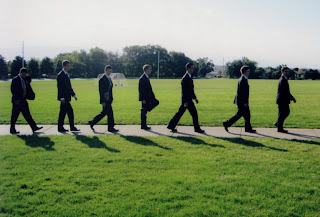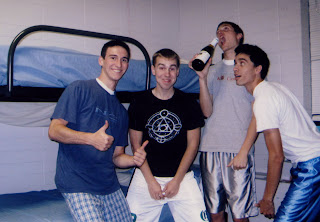
Saying good-bye to Ted and Rachel
Some of Nick's comments from the MTC include:
After 5 days, he wrote: "We have been learning insanely fast. I can already pray and bear my testimony in Spanish with no notes." "Being here has really strengthened my testimony and I am loving it."
After 2 weeks, he wrote: "I am amazed because last Sunday we had about 8 hours of meetings and I actually didn't get bored... I might make it through the mtc without a nap."
"One small cool blessing I noticed this week was that my companion was having a hard time sleeping all week so I prayed to help him find more rest. That night he fell asleep quickly and said he didn't wake up in the night. It's awesome how the Lord will bless us even with the smallest things we ask of Him."



Only Nick and his companion, Elder Howard, are
going to to Spain. The rest of the district will serve in Texas.
After 5 days, he wrote: "We have been learning insanely fast. I can already pray and bear my testimony in Spanish with no notes." "Being here has really strengthened my testimony and I am loving it."
After 2 weeks, he wrote: "I am amazed because last Sunday we had about 8 hours of meetings and I actually didn't get bored... I might make it through the mtc without a nap."
"One small cool blessing I noticed this week was that my companion was having a hard time sleeping all week so I prayed to help him find more rest. That night he fell asleep quickly and said he didn't wake up in the night. It's awesome how the Lord will bless us even with the smallest things we ask of Him."



Only Nick and his companion, Elder Howard, are
going to to Spain. The rest of the district will serve in Texas.





